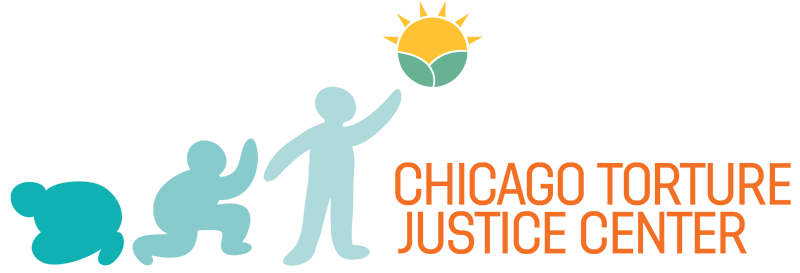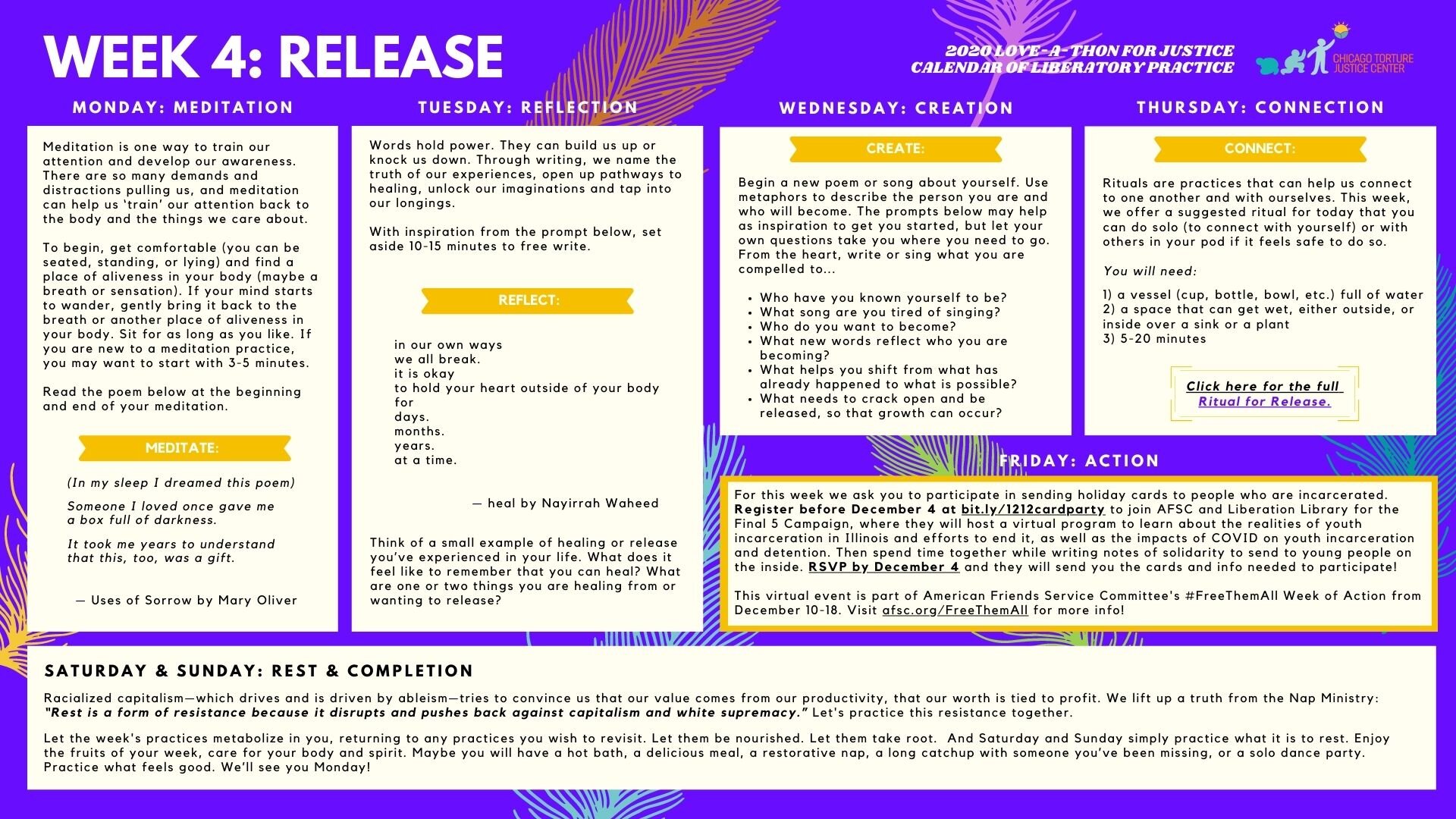Week 4: Release
To live in this world
you must be able
to do three things:
To love what is mortal;
to hold it
against your bones knowing
your own life depends on it;
and, when the time comes to let it go,
to let it go.
— Mary Oliver
The harm—physical and emotional—we experience as a result of enduring state and structural violence can leave us with overwhelming feelings and memories. These lay heavy on our hearts and impact our well-being. A practice of release can help cleanse this toxicity from our bodies and spirits. As we move towards healing, what are we able to release?
This week’s practice invites us to explore what is taking up space and energy and consider releasing what no longer gives us life.
Releasing is not only a letting go, but it is also about clearing out room for new possibilities of understanding, mourning, joy, remembrance and connection. Like the power of the earth to restore itself, we can experience life after death and loss—this time of year, the leaves fall, die and return to the ground. And from the regenerative darkness of the soil, new beauty emerges each spring. This restorative power found in nature is within us, too.
Release can be easier said than done. We may feel ready to stop carrying a burden but feel uncertain about how to set it down. We may fear that the release of memories will bring too much pain, or distance us from those we have loved and lost.
The truth is, we don’t always get to choose to release. Sometimes, release finds us—in the form of loss, pain and trauma we would never ever choose for ourselves. There is strength and healing in naming this. At CTJC, we have begun to practice politicized grief as a way to nurture our resilience and claim our power.
Release requires courage—individually and collectively. Imagine us alongside you this week as you brave your relationship with release. What do you no longer need to carry? What no longer serves you? Can you practice release as a way of opening up space for what is next? As a community we open ourselves to that great, annual mystery: what may die in the cold of winter can return to life in the spring. What in you calls out for renewal? For release?


